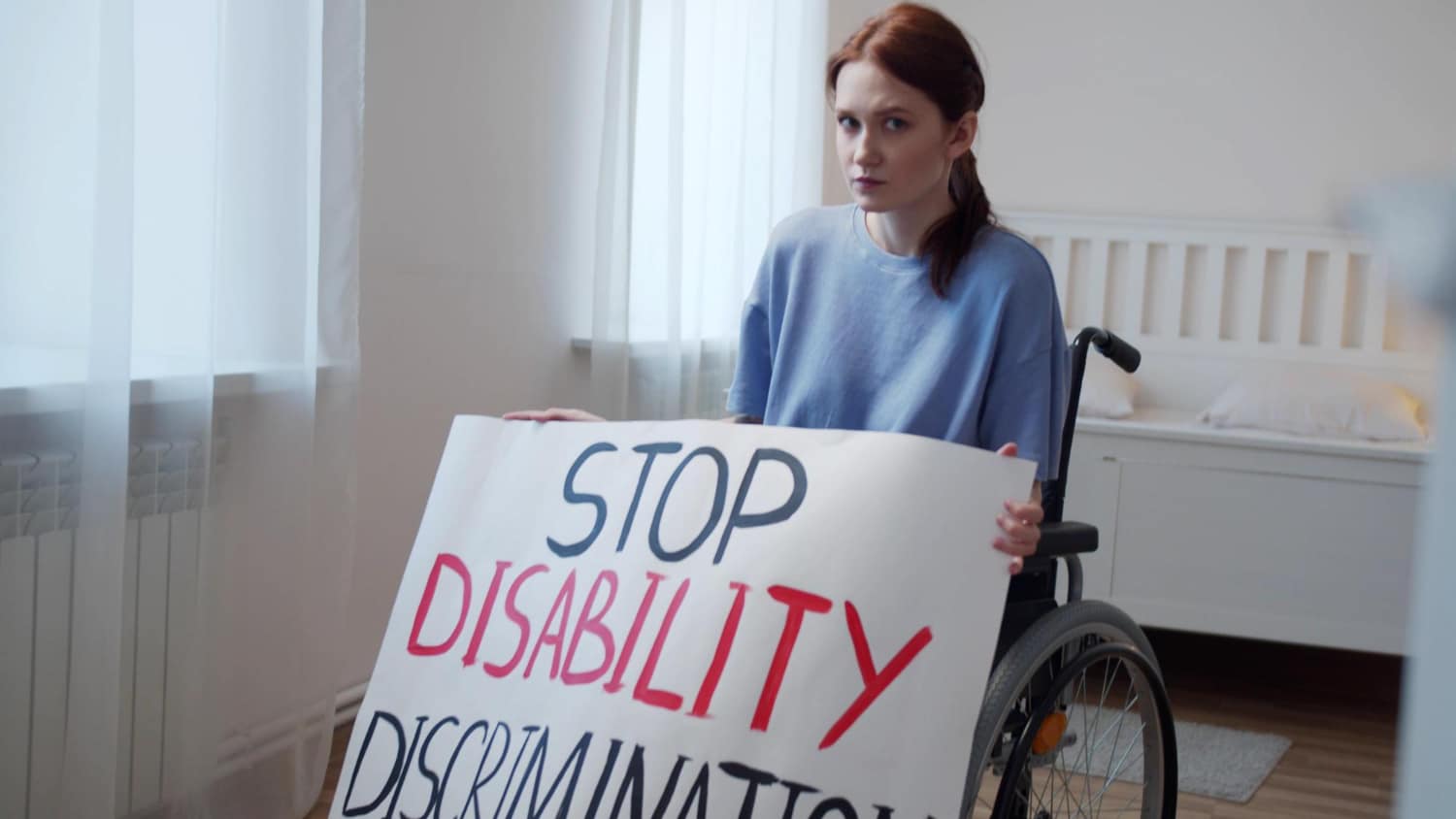Disability claim backlogs worsen across several states

Disability claim backlogs worsen across several states, causing significant delays for applicants and leading to emotional, financial, and health struggles while advocacy groups and resources aim to alleviate the impact.
Disability claim backlogs worsen across several states, leaving many applicants in a lurch. Have you ever wondered how these delays affect those in need of support? Let’s take a closer look.
Understanding the disability claim process
Understanding the disability claim process is crucial for those seeking support. From initial applications to potential appeals, this pathway can be complex and sometimes overwhelming for many.
Steps in the Disability Claim Process
The first step is to gather necessary documentation. This includes medical records, work history, and any supporting evidence to substantiate your claim. A well-prepared application can help reduce delays in processing.
Assessing Eligibility
To qualify for benefits, claimants must meet specific criteria set forth by the Social Security Administration (SSA). They consider several factors, including:
- Your age and work history
- The severity of your disability
- Your ability to perform any kind of work
Understanding these criteria can guide you in preparing your claim effectively. Moreover, staying organized and responding to requests promptly can keep the process moving.
After submission, applicants often face a waiting period. During this time, the SSA reviews the provided information. It’s important to remain patient, but also proactive. If you haven’t heard back in a reasonable timeframe, consider following up.
What to Do if Denied
If your claim is denied, do not lose hope. Many initial applications are turned down. It’s essential to understand the appeal process, which allows you to present additional evidence or clarify misunderstood aspects of your case. Knowing this can ensure you don’t miss your chance for benefits.
In addition to appeals, seeking help from advocate groups or attorneys familiar with disability claims can offer valuable assistance. They can help navigate the complexities of the system and improve your chances of success.
Current statistics on backlogs across states
Current statistics on backlogs across states reveal a troubling trend. Many individuals seeking disability benefits are facing longer wait times than ever before. This situation affects their ability to receive necessary support in a timely manner.
Overview of Backlog Data
As of the latest reports, states are experiencing varying levels of backlogs, which can impact applicants significantly. For instance, some states show a backlog of over 1 million claims pending, while others have managed to streamline their processes more effectively.
Key Statistics
Here are some key statistics to consider:
- Average wait time for disability claims has increased to 6-12 months.
- Some states have a pending claim rate of up to 50% of total applications.
- Nearly 70% of initial applications are denied, leading to more appeals.
The variability in these figures highlights the challenges many face. It’s crucial for applicants to stay informed about their state’s specific situation and average wait times.
In addition, understanding these statistics can equip individuals with realistic expectations. Many applicants are often left in the dark about how long their claim might take. By knowing the current statistics, individuals can better plan for their financial and medical needs during the wait.
Factors Contributing to the Backlogs
Several factors contribute to these backlogs. Increased application rates, particularly during economic downturns, mean that more individuals are seeking assistance. Additionally, staff shortages and inefficiencies within the processing systems can hinder timely assessments.
As awareness grows about the challenges faced by applicants, community advocacy groups are stepping up to help. They provide resources and support to navigate the complex system, aiming to reduce the impact of these backlogs.
Impact of delays on individuals and families
The impact of delays on individuals and families seeking disability benefits can be profound. These delays often lead to emotional, financial, and health-related struggles.
Emotional Toll
The waiting period can generate feelings of anxiety and helplessness. Families experience stress as they await support that might be critical for their well-being. Many applicants may feel isolated, unsure of when they will get the help they need.
Financial Consequences
Delays can also create significant financial hardship. Many individuals rely on these benefits for their daily expenses. Without timely assistance, families might face challenges such as:
- Inability to pay bills on time
- Accumulating debt
- Increased risk of losing housing and healthcare
These financial strains can further exacerbate stress within the family unit. Parents may have to change jobs or cut back on hours, putting additional pressure on the household.
Furthermore, many individuals may find themselves depleting savings to cover necessary expenses, leading to a precarious financial situation. The ongoing uncertainty makes planning impossible and keeps families in a constant state of worry.
Health Impacts
Health can also decline when delays in receiving benefits occur. Families without sufficient income may struggle to afford essential healthcare needs, medications, or nutritious food. This can result in worsening health conditions, creating a vicious cycle of physical difficulties and emotional distress.
Moreover, the prolonged stress related to financial uncertainty and health concerns can lead to additional mental health challenges. It’s not just about waiting for a decision; it’s about the ripple effect that unfolds during this time.
Mitigating these impacts requires supportive community resources and strong advocacy. Families affected by delays can benefit from connecting with advocacy groups that provide guidance and assistance in navigating the claim process.
Efforts to reduce the backlog issue
Efforts to reduce the backlog issue in disability claims are underway in many states. Various approaches aim to streamline the process and provide timely support to those in need.
Increasing Staffing and Resources
One significant effort involves increasing staffing within the agencies handling these claims. States are hiring more personnel trained to process applications efficiently. With more hands on deck, the workload is distributed more evenly, which can help reduce waiting times.
Implementing Technology
Another strategy is the incorporation of new technologies. Automated systems can aid in the processing of claims, making it faster and more accurate. Some states have begun using online applications, which enable applicants to submit necessary documents electronically. This reduces the need for physical paperwork, speeding up the entire process.
Additionally, states are looking into software that enhances communication between departments. Better communication can prevent overlaps or loss of documents, ensuring claims are evaluated promptly.
Community Outreach Programs
Community outreach programs are also being developed to educate applicants about the claims process. These programs help individuals understand how to prepare their applications effectively, minimizing errors that may lead to delays. By ensuring that claims are filed correctly from the start, the number of backlogs can be significantly decreased.
- Workshops on documentation requirements
- Advisors available for one-on-one assistance
- Online resources and tutorials
Furthermore, advocacy groups are actively working with policymakers to address the root causes of backlogs. They are pushing for reforms that can create more sustainable solutions for the future.
Involving stakeholders, including community members and healthcare professionals, in discussions about improving the system can yield valuable insights. Collaborative efforts can lead to innovative solutions that help end the cycle of delays.
Resources for those affected by delays
Resources for those affected by delays in disability claims are essential for navigating the difficult landscape of support. Many organizations and tools exist to assist individuals and families during this challenging time.
Local Advocacy Groups
One of the best resources available is local advocacy groups. These organizations focus on helping individuals with disabilities understand their rights and the processes involved in claims. They provide:
- Workshops to educate on the claims process
- One-on-one consultations with trained advocates
- Support groups for emotional and practical assistance
By connecting with these groups, individuals can gain insights that can help decrease their feelings of isolation and confusion.
Online Support Communities
Online forums and support groups can serve as valuable spaces for sharing experiences and receiving tips from others in similar situations. These communities often offer:
- Discussion boards for question and answer sessions
- Shared resources and documentation templates
- Emotional support from peers
Accessing these platforms can empower individuals to feel less alone while navigating the claims process.
Additionally, many websites provide comprehensive guides on the documentation needed for claims. This information can help ensure that all applications are submitted correctly, which may prevent future delays.
Legal Assistance
If the delays become prolonged, seeking legal assistance may be necessary. Lawyers who specialize in disability claims can help with:
- Understanding the legal aspects of the claims process
- Aiding in the appeal of denied claims
- Preparing applicants for hearings
These professionals can be invaluable resources for navigating complex situations and ensuring that applicants receive the support they deserve.
Finally, it’s important to stay informed about changes to disability policies and state laws. Websites of government agencies often publish updates that can impact claims, and being aware of these changes can provide applicants with necessary context and clarity.
FAQ – Frequently Asked Questions about Disability Claims Backlogs
What causes backlogs in disability claims?
Backlogs can occur due to high application rates, staffing shortages, and inefficiencies in the processing systems.
How can I get support during delays?
You can connect with advocacy groups, online support communities, and legal assistance to get help navigating the claims process.
What should I do if my claim is denied?
If your claim is denied, consider appealing the decision and seeking assistance from a legal professional specializing in disability claims.
Are there resources to help with the claims process?
Yes, resources such as workshops, guides, and consultation services are available to help applicants understand the requirements and improve their chances of approval.





